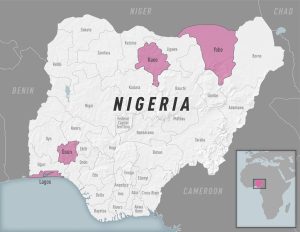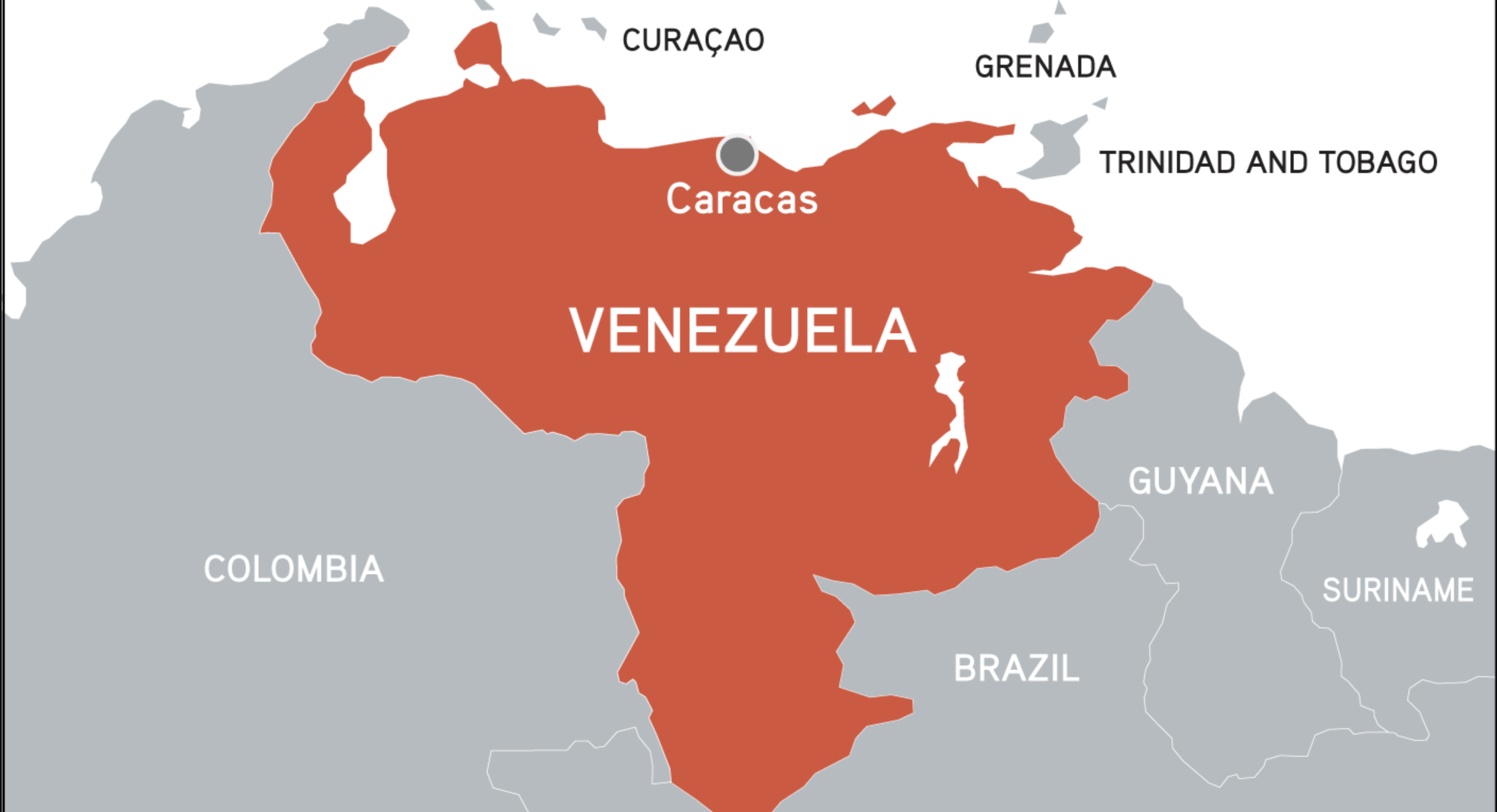- General
- August 31, 2024
- 14 minutes read
The Resource Curse: Causes, Effects, and Solutions
DR Congo, Angola, Nigeria, Venezuela, and Zambia. These countries have something in common: valuable natural resources yet poor economies. They…

DR Congo, Angola, Nigeria, Venezuela, and Zambia. These countries have something in common: valuable natural resources yet poor economies. They are apt examples of the “Resource Curse Theory,” a paradoxical situation whereby countries with valuable natural resources underperform economically. A few resource-rich countries have escaped this dilemma, but the majority tend to have deficient economies.
This situation might baffle you, but it shouldn’t when you examine the complexities of resource-based economies. When a country finds an abundant resource, it often focuses too much on it and neglects other critical parts of its economy, such as services, manufacturing, and infrastructure. Natural resources also incentivize short-term thinking, with countries focused on extracting resources and spending the proceeds immediately rather than making the necessary sacrifices for long-term growth.
Likewise, natural resources leave countries vulnerable to corruption by internal and external actors, e.g., an oil company bribing government officials to acquire extraction licenses cheaply. This course will explore the Resource Curse, its causes, effects, and possible solutions.
What is the Resource Curse?
The resource curse is a common occurrence in which countries with abundant natural resources have weak economies and worse development outcomes than countries with little to no natural resources. It’s common worldwide but is more pronounced on the African continent.
This phenomenon has been observed for centuries. In 1711, the British publication The Spectator noted, “It is generally observed, that in countries of the greatest plenty there is the poorest living.”
The term resource curse was formally coined in 1993 by British economics professor Richard Auty. He used it to describe how countries with plentiful mineral resources were unable to leverage these resources to develop their economies and how, counterintuitively, such countries had lower development outcomes than nations without plentiful resources.
Many economists, political scientists, and other experts have extensively studied the resource curse to identify its causes, effects, and possible solutions. The consensus is that though it’s common, the resource curse is not universal or inevitable. It affects certain countries more, usually developing countries with weak institutions that can be easily corrupted. How a country spends its resource income, its government system, and industrialization level are crucial to its failure or success after encountering resources.
Now that we’ve understood the resource curse let’s examine its causes.
Causes of the resource curse
The generally accepted cause of the resource curse is that too much of a country’s capital, labor force, and government policies become concentrated in resource-dependent industries while other sectors are neglected. Inadequate investments in other vital industries weaken these industries and slow the overall economy.
It gets worse: Resource-dependent countries are vulnerable to rapid declines in commodity prices, making it difficult to make long-term investments. Governments can plan a development initiative over the next few years, expecting commodity sales to give them the revenue to fund it. However, commodity prices can slip quickly, leaving the government short of funds to implement the project.
Take Nigeria, Africa’s most populous nation with over 230 million people. Oil was discovered in 1956, and commercial production began in 1958. At the time, Nigeria, with a population of roughly 43 million, was expected to experience strong economic growth on the back of oil exploration. But the long-term results were dismal.

Nigeria had weak governance when it discovered oil, and the ensuing decades saw the country ruled by various military governments (it had five military coups from 1960, the year of independence, to 1999, the year it transitioned to democracy). The military regimes were too focused on reaping and sharing the short-term spoils of crude oil sales, neglecting other parts of the economy. The government neglected formulating and implementing policies to grow other vital sectors of a large economy. Industrialization and subsequent taxation to fund government expenditure was ignored in favor of oil, which brought in the majority of government revenue.
Of course, oil-dependent Nigeria suffered from fluctuations in oil prices. The 1970s energy crisis shocked the country hard, and the government introduced subsidies to cushion these shocks, including subsidizing the cost of refined fuel. This decision seemed reasonable in the short term but was gloomy in the long term because these subsidies became too expensive for a flailing government budget.
Nigeria transitioned to democratic rule in 1999, and General Olusegun Obasanjo, who had previously ruled Nigeria as a military ruler, was elected president. But the persistent corruption continued. The government continued to neglect developing non-resource sectors, despite Nigeria’s environment being suitable for mechanized agriculture, manufacturing, services, tourism, energy, and other valuable economic activities.
Government elites and citizens alike were more interested in extracting short-term oil-fueled gains than exercising restraint to build up other sectors. This continued until 2014, when oil prices crashed globally, denting Nigeria and many other oil-dependent countries. The Nigerian government depended on oil for 75% of government revenue, so this price crash triggered a domestic crisis. The government was short of funds for vital development initiatives. The Nigerian currency (Naira) lost 20% of its value from 2014 to 2015.
It didn’t help that Nigeria was dealing with pervasive corruption and increasing violence. Boko Haram, an extremist jihadist organization, pulled off a string of attacks culminating with the abduction of 300 schoolgirls in Chibok, Borno state, in April 2014. The resource curse began showing its effects, and the Nigerian economy started a downward trajectory.
Crowned Africa’s largest economy with a $510 billion gross domestic product (GDP) in 2014, Nigeria’s GDP halved to $253 billion in 2024, according to the International Monetary Fund (IMF). It slipped from first place to fourth, behind South Africa, Egypt, and Algeria, a country with less than a quarter of Nigeria’s population.
Why do countries fall victim to the resource curse?
It’s easy to blame the shortcomings of political leaders and citizens alike for short-termism that entraps them in the resource curse. But the reality is more complicated.
When humans encounter a complex situation, we often choose the easy way out, sometimes out of ignorance or, at other times, because we are too scared to face the complexities. When a poor country encounters a valuable natural resource, the easy way out is to extract and sell these resources for immediate government expenditure. Citizens tend to gloss over long-term planning, e.g., saving resource revenues in a wealth fund or processing resources locally to capture more value. People are incentivized to spend immediate revenue because that’s what they know– they have no previous experience dealing with sudden windfalls.
Resource extraction also incentivizes corruption, with government officials issuing exploration and extraction licenses in exchange for kickbacks. Even if a resource deal heavily favors the extracting company against the country, some government officials still approve it because they’ll benefit directly via bribes and kickbacks. Meanwhile, firms extracting and selling these resources cheat their country out of considerable value.
Countries with weak institutions are more vulnerable to the resource curse because government officials can easily be corrupted with the prospect of quick wealth. If corruption sets at the top, it creeps into lower levels, with everyday civil servants vying for their share of the “national cake.” The focus becomes dividing the cake instead of adding more ingredients to grow it so everyone can benefit more: short-termism over long-term planning.
In summary, weak governance, lack of knowledge and experience, and a propensity to follow the easiest path contribute to the resource curse in developing countries.
Effects of the resource curse
The main effects of the resource curse are poverty and low development outcomes. When other economic sectors are neglected in favor of resource extraction, countries get weak economies with little capital and investment to give the average person good jobs and high quality of life.
Take Nigeria, for example. With a GDP of $253 billion and a population of roughly 230 million, Nigeria’s GDP per capita amounts to just $1,100. Compare this figure to a developed country like Singapore, where the GDP per capita is nearly $83,000.
Nigeria’s government budget for 2023 is 20.5 trillion Naira, roughly $13 billion. This figure amounts to a paltry $57 annually for each Nigerian. Compare that to Singapore, with a government budget of $78 billion and a population of 5.6 million; this figure is roughly $14,000 per citizen. In other words, the Singaporean government spends 245x on its average resident than the Nigerian government– of course, the development outcomes of both countries can’t be compared.
According to the Nigerian National Bureau of Statistics (NBS), 63% of Nigerians (133 million) are considered multidimensionally poor. The multidimensional poverty rate varies across states, from as low as 27% in Ondo to as high as 91% in Sokoto.
- Multidimensional poverty is defined as having a meager income and lacking access to basic infrastructure and necessities like sanitation, healthcare, security, and housing. Typical poverty (40% in Nigeria, according to NBS) primarily means low income.
Similar poverty statistics are available for Venezuela, Congo, Angola, Equatorial Guinea, and other countries suffering from the resource curse. This phenomenon causes bad development outcomes and suffering for average citizens, showing the necessity of avoiding it.

Solutions to the resource curse
Anyone with a proven solution to the resource curse would have claimed their Nobel Economic Prize long ago. The reality is that there’s no single solution to this issue. It’s a complex issue with many causes and many proposed solutions. But that hasn’t stopped economic and political experts from researching viable solutions.
Government transparency and accountability are crucial steps in preventing the resource curse or, at least, blunting its effects. Resource extraction contracts should be transparent, letting citizens know which companies benefit from the extraction and how much the government gets in royalties, licensing fees, and direct sales. With this information, citizens can demand good governance, wherein resource revenues are spent on public goods, such as education, healthcare, roads, electricity, and sanitation. Then, citizens can leverage these public goods to build more robust economies.
It should be noted that mineral resources don’t equal wealth. For instance, no matter how much crude oil Nigeria sells, it’ll never be enough to give 230 million people a good life. Having resources doesn’t permit the citizenry to neglect productive economic activities. Governments can augment their budgets with resource revenues but should never depend primarily on it– this dependence almost always leads to long-term ruin.
A good example is Norway, although not a perfect example because Norway was already a developed economy before discovering oil on its shores. After discovering oil, the Norwegian government took smart steps to avoid dependence on a commodity with fluctuating prices. It set up a sovereign wealth fund to save and invest the majority of oil revenues for the future. Then, the government passed a law that only 4% of the oil fund could be allocated annually to its public budget (later reduced to 3%). This fiscal rule ensures the Norwegian government never becomes dependent on oil and neglects other key economic sectors.
However, Norway was already a stable, developed country with strong government institutions and the rule of law before finding oil. This made it easier for the government and citizens to adopt a long-term framework with their newly-found resources. In contrast, in developing countries, governments and citizens become too desperate to spend resource revenues immediately. Such countries also have weaker institutions that are vulnerable to corruption by local and foreign actors.
It’s more challenging for developing countries to avoid the resource curse, similar to how lottery winners with sudden windfalls often go bankrupt. What tends to happen is that the government and citizens become too focused on sharing the immediate spoils instead of focusing on long-term savings and growth. Such countries become fixated on dividing the existing revenue pie instead of enlarging the pie long-term, and economic performance becomes poor.
The reality is that the more accountable, transparent, and competent a country’s government is, the less likely it is to fall victim to the resource curse. How to make governments have these characteristics is a complex question. There is no single answer; instead, there are a variety of answers.






